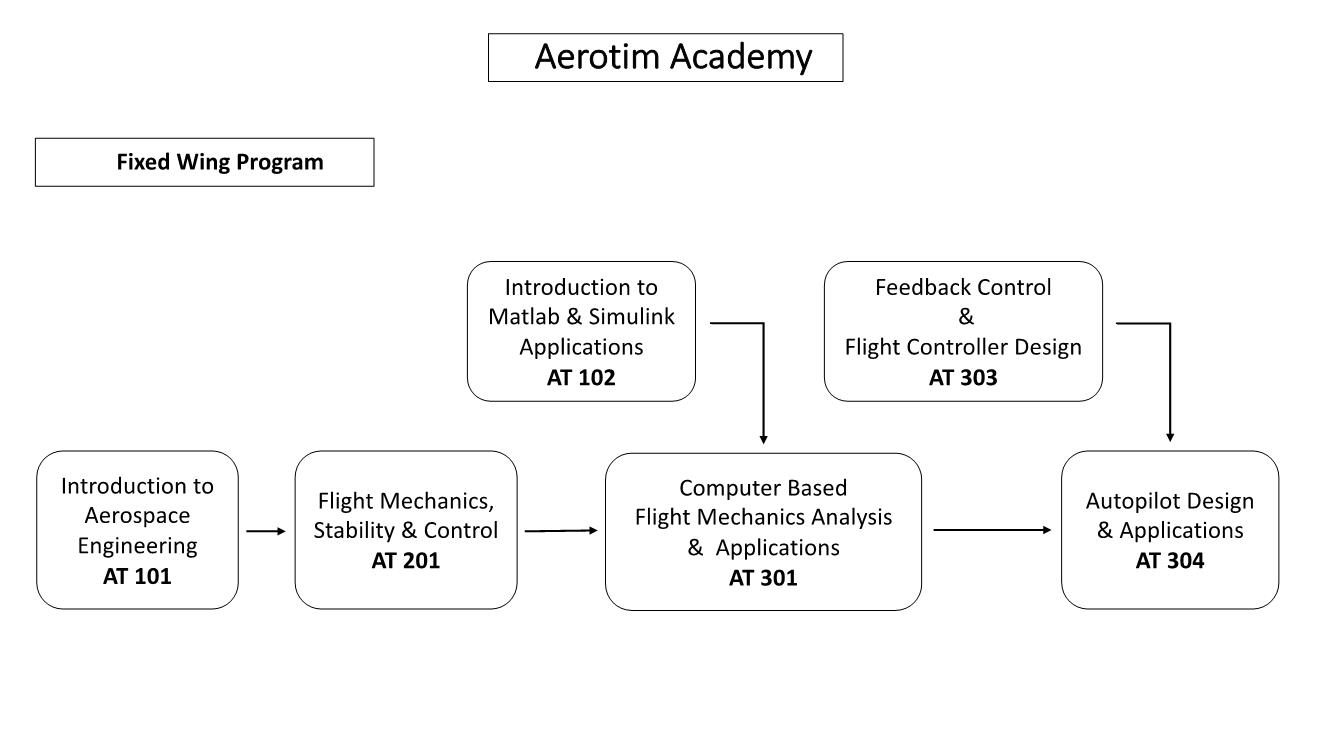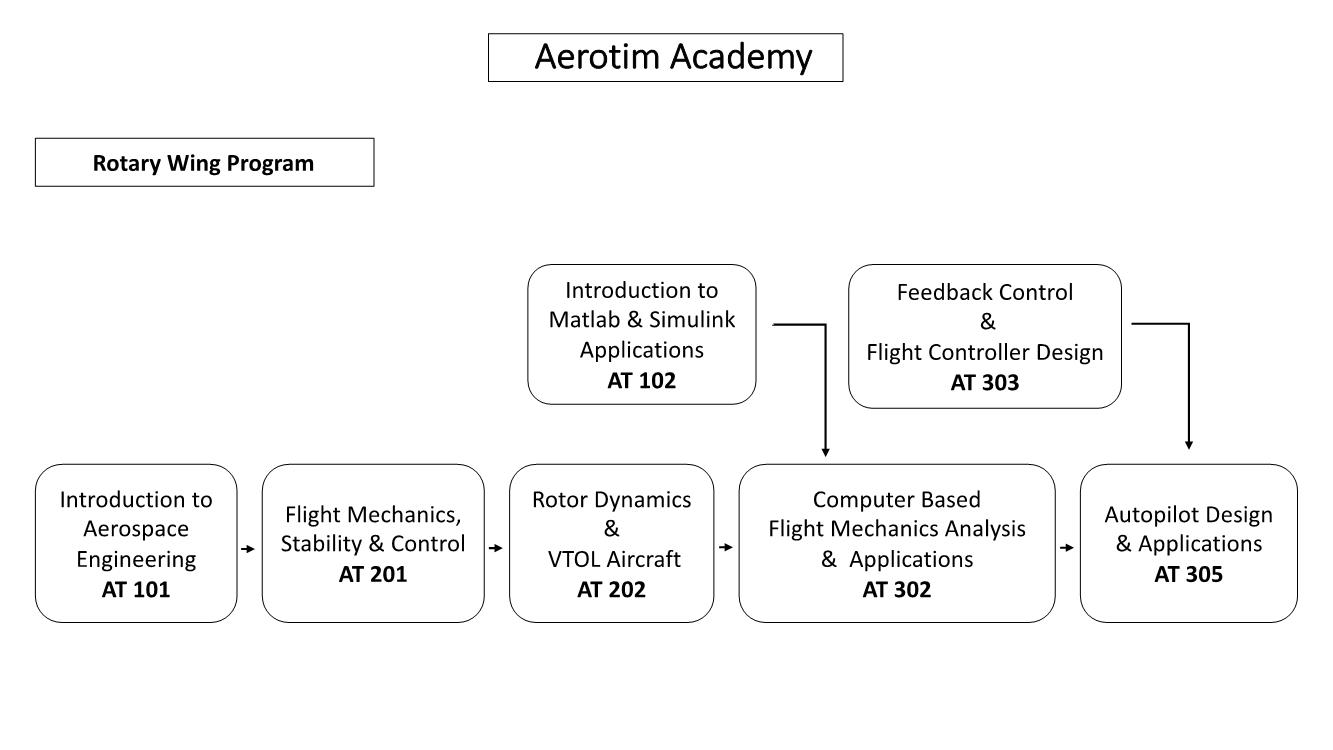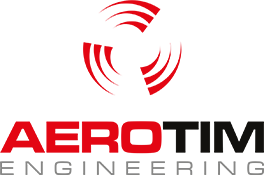
Short Course & Education
Do you want to improve yourself in Aviation Engineering?
Aerotim Engineering offers a series of tailor-made, hands-on training courses that blend theoretical and practical components, drawing upon the company’s 15 years of industrial experience and 20 years of academic knowledge.
Our training sessions are designed to suit professionals at all levels. For example, the AT101 course may contribute to your general aviation culture, even if you are not an engineer, whereas the AT304 course will teach you the specifics of the design of an aircraft autopilot system. Call us, and let’s determine together the courses that will best suit your needs.
Below, you can find the course levels and the courses to be opened at the specified levels. You can see our suggested sequence of courses in the diagrams, and can find details of the courses in the course descriptions.
NOTE: Due to the COVID-19 outbreak, all of our courses for 2020 will be delivered online. All training and courses are delivered in English.
For more information, contact us at academy@aerotim.com


Course Descriptions:
AT 101: Introduction to Aerospace Engineering (1 day)
This course is an introductory course towards Aerospace Engineering. The course covers Aerospace Engineering fundamentals, basic terminology, basic understanding of flight of fixed wing aircraft, rotary wing aircraft, etc.
This course is suitable for all professionals. It is recommended for non-Aerospace engineers and even for non-engineers, who would like to learn the terminology and have an overview of the world of Aerospace Engineering.
AT 102: Introduction to MATLAB & Simulink (1 day)
This short course offers the fundamentals to use MATLAB and Simulink in simulation and control of vehicles in general. The course is particularly recommended for students who had no or little use of the tool and would like to simulate dynamics systems, and use it for engineering analysis. The course will cover, both MATLAB Simulink tutorials as well as modeling of simple components, such as filters, linear models, etc.
AT 201: Flight Mechanics, Stability and Control (2 days)
This short course offers fundamentals of flight mechanics and an introduction to control theory. The course covers fundamentals, such as coordinate systems, vector transformations, Euler Angles, aerodynamic derivatives, linearization, trim, flight modes, stability of aircraft, etc. The course also includes, the physical choices to make in aircraft design to produce a desirable aircraft in terms of handling qualities and stability and control.
AT 202: Rotor Dynamics and VTOL Aircraft (1.5 days)
This course is particularly useful for engineers who would like to gain a better understanding of aircraft with rotary wings, such as helicopters, electric VTOL, unmanned drones, etc. This short course covers the theory of rotors in terms of performance, dynamics and control, essential in the design, and controller and autopilot development of VTOL Aircraft. The course covers, momentum theory, blade element methods, flapping, inflow dynamics, modeling and simulation of rotors, etc. and its applications to VTOL aircraft.
AT 301(302): Computer Based Flight Mechanics Analysis and Applications (2 Days)
This course –offered for fixed wing (301) and rotary wing (302) aircraft- is a hands-on workshop on computers and is a step-by-step development tutorial of aircraft simulation for the purpose of simulated real-time flight, stability and performance analysis, aircraft design, etc. The simulation program developed in class can also be used for autopilot design, software and hardware in the loop simulations, etc.
AT 303: Feedback Control and Flight Controller Design (2 days)
This short course provides a theoretical review of feedback control theory as required to design controllers for flying objects. In particular a review of classic control and modern control is explained in the context of flight controllers. Later, the theories are applied to aircraft in simulation. Commonly used controllers such as state feedback, LQR, command filtering, adaptation, etc. are presented. The concepts are used to develop controllers in simulation to stabilize aircraft, and navigate in three-dimensional space etc.
AT 304 (305): Autopilot Design and Applications (2.5 days)
This course is an advanced level course and covers topics needed to built an autopilot for manned and unmanned aircraft. It is assumed that the applicant has a background in engineering and knows basics of flight dynamics and control. The course, starts with fundamental topics of control theory, navigation, filtering, etc. The concepts are used to develop autopilots to stabilize aircraft, and navigate in three-dimensional space etc. Finally, the course allows students to do a hands-on application to develop and fly an autopilot on an unmanned platform. Each student will use a commercial open source autopilot and develop it to a real flying system.
The course is offered for fixed wing (AT 304) and rotary wing (AT 305). Rotary wing includes helicopters, drones and electric VTOL, etc.
- Daily lecture hours: 9:00 – 12:00 & 13:30 – 15:30

